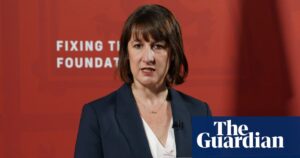
in a concerted drive to cut public spending.
With some of these measures seen as middle-class subsidies, ministers have already ordered cuts to flood defence spending, the Scottish arts budget, council spending on nature restoration and, it has emerged, free iPads for some school children.
The Times reports that Caroline Lamb, the director general for health and social care in the devolved government, has told civil servants there is a £1.1bn spending gap in her department, driven in large part by public sector pay deals recently agreed by ministers.
She told her staff they needed to save £750m this financial year, and prepare for the additional cost pressures of £357m more next year to cover pay increases. The Times reports that free tuition for Scottish university and college students is also under scrutiny.
Shona Robison, the Scottish finance secretary, issued an order to all her department heads earlier this month to implement “emergency controls” on spending driven by the warning from Rachel Reeves, the Chancellor, that the UK government had a £22bn spending gap to bridge.
The chancellor’s cuts to spending for English or pan-UK departments will directly affect Scotland’s grant from the Treasury.
Robison’s instructions have led to officials cancelling some projects, curtailing others or cutting heavily on in-year spending. She is preparing for an emergency spending statement when Holyrood resumes in early September.
These cuts raise significant political risks for the SNP: much of their popularity has been based on the higher per capita spending for Scottish public services than the UK average, and the SNP’s willingness to fund universal benefits, including free bus travel for all over-60s and under 22s; a council tax freeze; abolishing bridge tolls and hospital parking fees; a temporary suspension of peak rail fares and subsidised ferry fares.
Lamb, also the chief executive of NHS Scotland, told her officials “we have been experiencing a worsening, overall, underlying, financial deficit over a number of years”.
“[We’ve] managed to almost limp over the line over the last year or two but we’ve now got to the point where it’s actually a bit of a tipping point,” she told civil servants.
Rishi Sunak should not leave June’s D-day commemoration in Normandy early, according to new revelations in a book about the Tories’ 14 years in power.
The department passed on two messages to Downing Street in the weeks leading up to the event, which were then ignored in what has gone down as the worst election campaign blunder of the last 14 years.
The claim is contained in the paperback version of Blue Murder, by the Daily Telegraph’s political editor, Ben Riley-Smith.
The Guardian has also spoken to multiple sources about the events of that day, giving the fullest picture yet of the mistake that came to define Sunak’s campaign and taint his entire premiership.
According to the book, the Foreign Office provided written advice on two occasions before the event telling Downing Street that the prime minister should attend.
The first came a few weeks before the event and the second just a few days before, once it became clear that Keir Starmer would be attending, as would the Ukrainian president, Volodymyr Zelenskiy.
You can read the full story by Kiran Stacey, a political correspondent for the Guardian, here:
the prisons crisis, which has seen the judiciary ask magistrates’ courts to delay sending some criminals to prison in the coming weeks because of unprecedented overcrowding.
Speaking to LBC radio, Reeves said:
The prime minister will be speaking later today about the inheritance from 14 years of Conservative government, the black hole in the country’s finances, but also the societal black hole that we’re facing.
For example, the fact that the prison estate has been operating at 99% capacity with no plan from the previous government to fix that, so he’ll be talking about fixing the foundations.
Under the previous government, we saw the sticking plaster politics papering over the cracks, hoping that something would come up, whereas Keir Starmer, the prime minister, wants to fix the foundations of the country so that people’s lives can be better.
Up to 2,000 prisoners are expected to be released in the second week of September as part of an early release scheme, called SDS40, which will allow many prisoners to walk from prison after serving 40% of their sentences. A second tranche of up to 1,700 prisoners, all jailed for more than five years, are expected to be freed in late October.
A senior official from Napo, the probation officers’ union, said its members were trying to prepare for the early release scheme in September, but the government was unable to maintain staffing levels, let alone recruit more, as required.
KPMG a £223m contract to train civil servants despite pledging to slash state spending on external consultants.
Under the 15-month deal with the Cabinet Office, which is reportedly the second-largest public sector contract ever won by KPMG, the firm will manage training and development services across the civil service.
This includes overseeing courses on policymaking, communications and career development, as well as training for assessed or accredited qualifications run by universities, business schools and specialist providers.
News of the contract, which was first reported by the Financial Times, comes after the new Labour government announced last month it would take immediate action to stop all non-essential government consultancy spending in 2024-25 as part of a move to halve the government consultancy bill in future years.
The cost-saving initiative will save £550m in 2024-25 and £680m in 2025-26, according to Treasury estimates. The government said the civil service headcount cap would be lifted to help departments achieve the target.
The KPMG contract was awarded just days before the government set out its cost-saving proposals, the official record of the contract award sets out. Its maximum value represents nearly 8% of KPMG’s annual UK revenues, making it the second-biggest public sector contract awarded to the firm, according to the data provider Tussell.
reported that major Labour donor Lord Waheed Alli was able to access Downing Street, despite not having an official government role.
Alli, a television executive who was given a peerage by Tony Blair in 1998, is a crucial figure in the Labour party, having personally donated £500,000 since 2020. He worked as the party’s chief fundraiser for the general election, having been hired by Keir Starmer in 2022, as the Guardian’s political correspondent, Kiran Stacey, explains in this report.
Ellie Reeves, the Labour party chair, was asked about the reports today. She insisted that the “proper processes” were followed when questioned on why Lord Alli was given a pass to Number 10.
Reeves, who also holds the government post of minister without portfolio, told Sky News:
Well, there’s no rules that prevent someone who has made a donation or had a political job in the past being, having a role.
There are rules that have to be followed, there are processes that have to be followed, and it’s important that those rules are respected.
Lord Alli had a pass for a few weeks. I don’t know all the details of that, but I’m sure the proper processes were followed.
He had a pass for a few weeks, as I understand it, he hasn’t got a pass now. He’s a well respected figure, a Labour peer.
useful explainer on pension credit eligibility). Labour MPs have warned that the decision could lead to a “cruel winter” for the most vulnerable people in the country.
Reeves blamed the Tories’ “economic mess” for the restrictions on winter fuel payments and denied claims that Cabinet members are split on the policy.
Speaking to Sky News, she said:
This is an incredibly tough decision, and not one that the Chancellor wanted to be taking, but it’s because of the economic mess that we’ve inherited from the previous government.
The Cabinet are behind the chancellor on this. This is a decision that’s been taken by the chancellor, with the support of the Cabinet, there aren’t splits on this.
It’s a decision that no one wanted to be in the position to have to make, it’s not something that we wanted to do, but it’s something that is the responsible thing to do because of that £22 billion black hole in the country’s finances.
a heavily briefed speech in the gardens of Downing Street ahead of parliament’s return next week. The prime minister will vow to “reverse a decade of decline” and to “fix the foundations” of the UK economy.
The prime minister will promise that his government will do the “hard work” to “root out 14 years of rot” under the Conservatives.
Ministers have already been heavily criticised for ending winter fuel payments for millions of pensioners. Starmer is also under pressure to end the two-child benefit cap and extend the £1bn household support fund, which is due to end in September.
The prime minister will use his speech – due to be delivered at 10am – to warn that “frankly – things will get worse before we get better” as the Labour administration tries to deal with “not just an economic black hole but a societal black hole”.
He is expected to say:
The riots didn’t just betray the sickness, they revealed the cure, found not in the cynical conflict of populism but in the coming together of a country the morning after and cleared up their community.
Because that is who we are, that is what we stand for. People who cared for their neighbour.
Communities who stood fast against hatred and division. Emergency services who did their duty – even when they were in danger. And a government that put the people of this country first.
Writing in The Times, Starmer said that “once trust is broken, it is difficult to get back”, saying he stood on the steps of Downing Street after the general election and promised to lead a government that would “return politics to public service, to rebuild that hope and trust”.
Reacting to details of the prime minister’s speech, Tory party chairman Richard Fuller said:
This is nothing but a performative speech to distract the public from the promises Starmer made that he never had any intention of keeping.
In fewer than 100 days, the Labour Party has dumped its ambition of public service and become engulfed in sleaze, handed out bumper payouts to its union paymasters with ‘no strings’ attached and laid the groundwork to harm pensioners and tax working people.
In other news:
-
A £40m VIP helicopter contract used extensively by the former prime minister Rishi Sunak is to be cancelled. Starmer and his defence secretary, John Healey, have decided not to renew a contract for helicopter transport which is due to expire at the end of the year after it was extended in 2023 at Sunak’s personal insistence.
-
The Scottish government has been told to “take responsibility” for fixing the country’s economic issues. Scottish Labour leader Anas Sarwar has sought to capitalise on dire financial news in recent months by releasing what the party is calling a dossier laying out the extent of Scotland’s “economic decline and financial mismanagement” that can be laid at the foot of ministers.
-
Rachel Reeves could raise at least £10bn a year through a radical shake-up of pensions that would make tax relief less generous to better-off earners, a leading left-of-centre thinktank has said. The report by the Fabian Society says tax breaks for pensions have become markedly more expensive for the government and its proposed changes would fill half the £22bn shortfall the chancellor has identified in the public finances. You can read more on this story here.
It is Yohannes Lowe here with you today. Please do email me on [email protected] if you spot any typos or omissions.
Source: theguardian.com


















